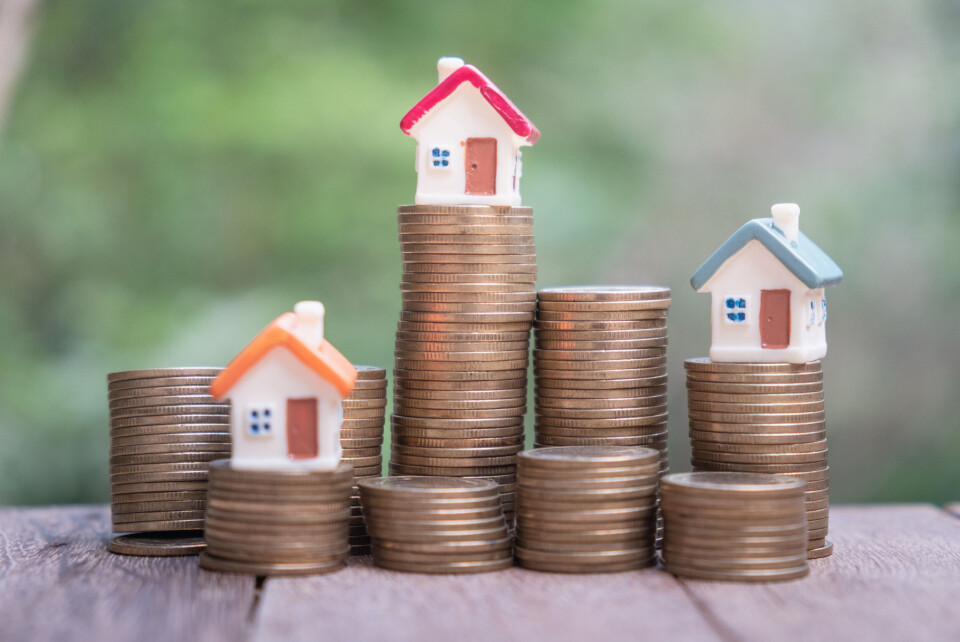-
Repayable-on-death equity release loans open again to non-EU retirees
Products have recently started being offered by bank group again after it paused them in 2019
-
France finally passes 2026 budget - what it means for residents
Budget has measures to help homeowners and low earners but is more punitive to business and local authorities
-
Insurance denied for Britons' French hilltop home due to 'flood risk'
Underwriters decided to end cover linked to alleged proximity to water
Taxe foncière property tax in France: What exemptions exist?
This tax is payable by property owners but individuals can benefit from an exemption or reduction depending on their situation and the nature of the building or land

It is October: Time for many homeowners in France to pay their taxe foncière property tax bill if they have not opted for monthly payments.
If you have been paying in monthly instalments, your new avis d’impôt statement for this tax will tell you if you still have instalments to pay this year.
Otherwise, the deadline is October 15 or 20 depending on the mode of payment. Further information can be found on the public information website, Service public.
Local property taxes in France are split into taxe d’habitation – a tax on residence payable by whoever is living in a property as their home on January 1 – and taxe foncière, which is applicable to the owner/s of a property.
Those who own a property in France, whether residential, commercial or industrial, on January 1 in any given year will need to pay this tax whether or not they live in it.
Money raised through taxe foncière is fed into municipal councils to fund local services.
Taxe d’habitation is gradually being phased out for main homes and will be completely removed for them by 2023.
However, taxe foncière has increased in recent years, growing by an average of 31.4% between 2009 and 2019, while for the same period the rate of inflation was 10.7%, according to the property owners’ representative, the Union nationale des propriétaires immobiliers.
Read more: Taxe foncière France’s local property tax: Who pays and the exemptions
What are the grounds for exemption?
There are some situations which exempt individuals from having to pay taxe foncière, or entitle them to reductions.
- New builds: Newly built residential properties, extensions to existing buildings and rural conversions are not subject to taxe foncière for the first two years as long as the construction work is declared to the tax authority within 90 days of completion.
Non-residential buildings are only granted partial relief.
The local commune can also decide to limit the rebate on residential new builds to between 50% and 90%.
- Elderly people of modest means: People aged 75 and over on January 1 of the year that the tax is payable are also exempt, provided that their income was below a certain threshold in the previous year. This relates to revenu fiscal de référence (net taxable income) as shown on your last avis d’impôt income tax statement.
For 2020 income (the last declared), this limit was €11,120 for a single person, €17,058 for a couple and an extra €2,969 for any dependents.
The exemption only applies if the person lives alone, or with a partner, dependents or another person whose income sits below the threshold.
- Those who receive AAH, Aspa or ASI: exemptions apply to registered disabled people of any age who receive l’allocation aux adultes handicapés (AAH) and whose income does not exceed the threshold detailed above.
Elderly people who benefit from l’allocation de solidarité aux personnes âgées (Aspa) or l’allocation supplémentaire d’invalidité (ASI), are also eligible for exemption on their main residence.
- Over-65s: People aged 65 and over on January 1 of the year in question who are not completely exempt are entitled to a €100 taxe foncière rebate for their as long as their income does not exceed the limit mentioned above and the property is their main home.
All of these groups can continue to benefit from the relevant tax exemption or reduction if they begin living in a care home, as long as their property is not occupied.
The authorities can also award a five-year taxe foncière holiday to offices that have been converted into housing, as long as they act as principal residences and not second homes.
- Low income households: People whose income sits below a certain threshold can have their taxe foncière payments capped if they constitute more than one half of their revenues.
In 2021, this is applicable to people whose annual income does not exceed €26,149, plus an extra €6,109 for their first dependent and €4,810 for any additional dependents.
This does not apply to waste collection charges.
People who pay the real estate assets tax IFI are not eligible for this cap.
- Empty houses: Individuals can receive a tax rebate if a property that would normally be rented out is left empty. This vacancy must be outside of the owner’s control, last at least three months and concern the whole property.
The house or flat must be in a condition appropriate for habitation, and the landlord must have made reasonable efforts to rent it out.
- Farmland: Land used for farming is subject to a permanent reduction in taxe foncière rates.
Some lands may benefit from a temporary exemption, for example, if they are used for timber or walnut production. The length of the exemption is decided by the local authority.
Related stories
Marseille joins other French cities to impose maximum second home tax
Who still has to pay taxe d’habitation in France and until when?
Tax cuts in France: Where have residents benefitted the most?
























